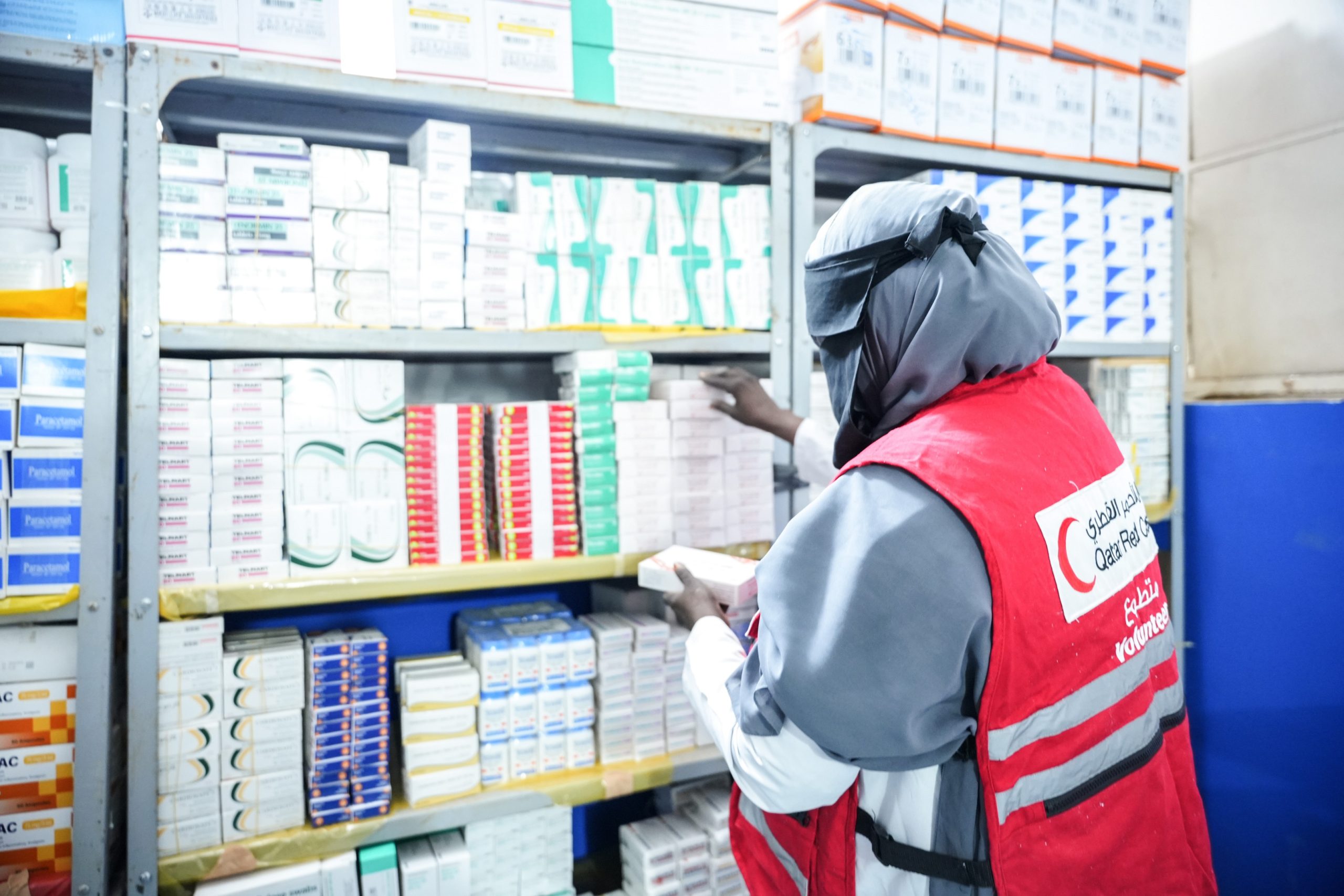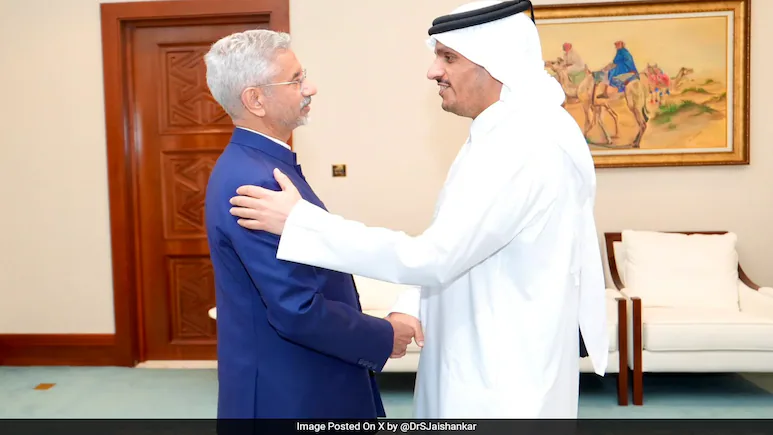Nearly four months on, the war has caused nearly 4,000 casualties in addition to tens of thousands of injuries.
Qatar Red Crescent Society (QRCS) opened a pharmacy at the Wad Medani Teaching Hospital in war-stricken Sudan on Saturday, as warring factions in the country failed to reach a permanent ceasefire in Khartoum.
“The QRCS office in Sudan opens a pharmacy at Wad Medani Teaching Hospital in Gezira to dispense prescription drugs free-of-charge to 348 displaced families at Wad Medani camps,” the Qatari aid entity said in a statement on Twitter.
The Qatari organisaiton also distributed 10 gastrointestinal endoscopes from the Gulf state’s Hamad Medical Corporation to hospitals in several Sudanese cities, the announcement added.
The much-needed medical assistance comes as Sudan grapples with a major shortage in medical supplies amid a conflict that has continued to rage on for more than 100 days.
The war broke out on 15 April following simmering tensions between the Sudanese army, led by General Abdul Fattah Al-Burhan, and the Rapid Support Forces (RSF), commanded by Mohammed Hamdan Daglo, widely known as Hemedti.
The two sides previously shared power under a four-year agreement following the toppling of former long-time Sudanese ruler Omar Al-Bashir during the 2019 revolution.
Nearly four months on, the war has caused nearly 4,000 casualties in addition to tens of thousands of injuries, though the actual figures are feared to be much higher. However, activists and local volunteer groups say the toll could be much higher, describing the current number as only the “tip of the iceberg”.
The war has also displaced more than 3.5 million people, making it one of the world’s biggest current humanitarian crises.
No ceasefire in sight
Saudi Arabia and the United States have been at the forefront of mediation efforts since the beginning of the conflict. While the two parties managed to produce a short-term ceasefire agreement in Jeddah in May, violence and intensified clashes on the ground quickly led to the collapse of the deal.
Since the start of the conflict, Sudan has scurried through at least 16 failed ceasefires, leaving little hope for an end to the fighting and raising fears over a massive civil war.
Last week, the Sudanese army’s delegation returned from the latest round of talks in Saudi Arabia “for consultations” and said discussions would continue after overcoming “obstacles”.
The army said at the time that the two sides had failed to reach an agreement over differences “including the rebels evacuating civilian homes” and public facilities in Khartoum.
Meanwhile on Saturday, Hemedti said in a video recording that the RSF is ready to reach a deal within 72 hours, though on the condition that the Sudanese army’s commander steps down.
Separate efforts aimed at reaching a lull in fighting were seen in Egypt on 13 July under the chairmanship of Egyptian President Abdel Fattah El-Sisi with the attendance of Sudan’s neighbours—Ethiopia, South Sudan, Chad, Eritrea, the Central African Republic, and Libya.
The talks had ended with a proposed initiative by President El-Sisi, which entailed the establishment of a permanent ceasefire and a dialogue framework between all Sudanese warring sides.
Qatar had welcomed the initiative at the time and described it as “an important step within the regional and international efforts to stop the fighting” in Sudan.
The conflict has also spilled over from the capital Khartoum to the Darfur region, where the discovery of a mass grave with at least 87 bodies has sparked accusations against the RSF.
The UN Human Rights Office previously said it had “credible information” that the paramilitary force was behind the mass killings. The harrowing discovery prompted an investigation by the International Criminal Court’s (ICC) over new war crimes and crimes against humanity in the region.
Human Rights Watch (HRW) has also issued a damning report in which it called on the ICC to investigate new war crimes in Darfur and the killing of “at least 28 ethnic Massalit”.
The Darfur region faced a genocide in 2003, during which the RSF commander, Hemedti led the Janjaweed militia. At least 300,000 people were killed and 2.7 million were displaced during the genocide.







